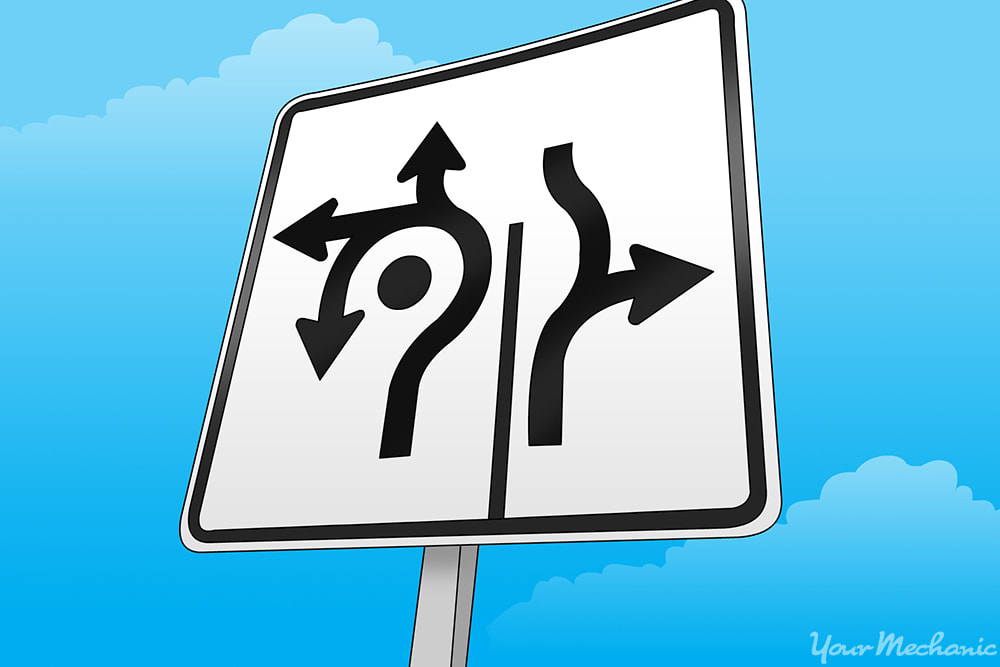OPP is telling drivers to remember the following rules when using roundabouts:
When entering a roundabout:
Visual checks: Do visual checks of all vehicles already in the roundabout and those waiting to enter (including cyclists).
Look left: Traffic in the roundabout has the right-of-way. When preparing to enter the roundabout, pay special attention to the vehicles to your left. Adjust your speed or stop at the yield sign if necessary.
Adequate gap: Watch for a safe opportunity to enter the roundabout. Enter when there is an adequate gap in the circulating traffic flow. Don’t enter directly beside another already in the roundabout, as that may be exiting at the next exit.
Travel counterclockwise: Once in the roundabout, always keep to the right of the central island and travel in a counterclockwise direction.
Keep moving: Once you are in the roundabout, do not stop except to avoid a collision; you have the right-of-way over entering traffic. Do not change lanes while in the roundabout. If in the inside lane and you miss your exit, you must continue around until you meet your exit again.
When exiting a roundabout:
Signal: Be sure to signal your exit and watch for pedestrians.
Maintain your lane: Stay to the left if you entered from the left lane or stay to the right if you entered from the right lane.
Maintain your position: Maintain your position relative to other vehicles.
Signal intent to exit: Once you have passed the exit before the one you want, use your right-turn signal.
Left lane exit: If exiting from the left lane, watch out for vehicles on the right that continue to circulate around the roundabout.
This is how my driving school taught me to use a roundabout. Though I never see anyone but me do this.
It seems crazy to me that some people find roundabouts so hard. I’ve always found them pretty intuitive but I’m definitely biased, when I was learning to drive there were about 8 roundabouts of various sizes near my house and I’d invariably have to take at least 3 at the start of any journey.
It’s probably just because we’re so used to them here but pretty much everyone seems to know how they work. Off the top of my head the only exception is one badly designed roundabout where you’re meant to stay in the outer lane unless you’re taking one exit that’s practically a u-turn, people always take the inner lane (like you’d normally do) and have to change last second.
seems crazy to me that some people find roundabouts so hard. I’ve
Depending where you live, roundabouts might still be a very rare thing to encounter, and the majority of local drivers might have never had to deal with one before.
Way back when I got my licence, they weren’t a subject mentioned in the instruction or on the test.
You can’t change lanes inside? So if you’re in the inside lane you can’t leave until you… leave and then change lanes and then teleport back in?
Not sure there. In the UK, the inside lane is generally (based on the signs on the road) for those who are going to the at least one exit further. Once your exit is the next exit, you’ll change lane to make the exit. You can’t simply making the exit from the inside lane unless there’s sign on the road telling you to do so.
If you enter to the inside lane you exit to the inside lane. Given how roundabouts are designed in Ontario, this ensures that traffic entering from the range direction never crosses: Right lane either exits right or goes straight (first or second exit), inside lane goes straight or left (second or third exit), just like at an intersection without dedicated turn lanes.
That’s not really how roundabouts work. In 2 lane roundabouts the outside lanes have mandatory exits where the inside lane can exit as well (since the outside lane cannot continue, there is no accident risk). In some roundabouts the inside lane becomes the outside lane at these junctures. At others the incoming outside lane takes over as the outside lane.
In any case, when entering a roundabout there is signage which tell you which lane can do what, so you only have to enter the roundabout in a lane that goes where you want.

This is no different than any other intersection, you have to be in a lane that goes where you want and you shouldn’t change lanes in an intersection. It’s illegal in many provinces and counterindicated in others.
Most roundabouts in Ontario are two lane roundabout. I have yet come across a three lane or four lane roundabout
My general consensus for two lane roundabouts is treat the inside of the roundabout as you would a regular signaled intersection, in that you dont change lanes inside the intersection.
If you came up to the intersection on the right you exit straight, or turn right. You can’t change your mind inside the intersection and turn left from the right lane. (Though this does not seem to stop a few motorists I have seen).
Alternative view of roundabouts (same principal), treat them like a continuous roadway. If you are in the right lane you dont suddenly turn fully left. Similarly if you are in the far left you dont suddenly turn fully right cutting everyone behind you off.
To add, if you did enter the roundabout incorrectly and ended up going in another direction then you originally desired, its generally best to continue through and course correct on the next roundabout or car park/parking lot.




